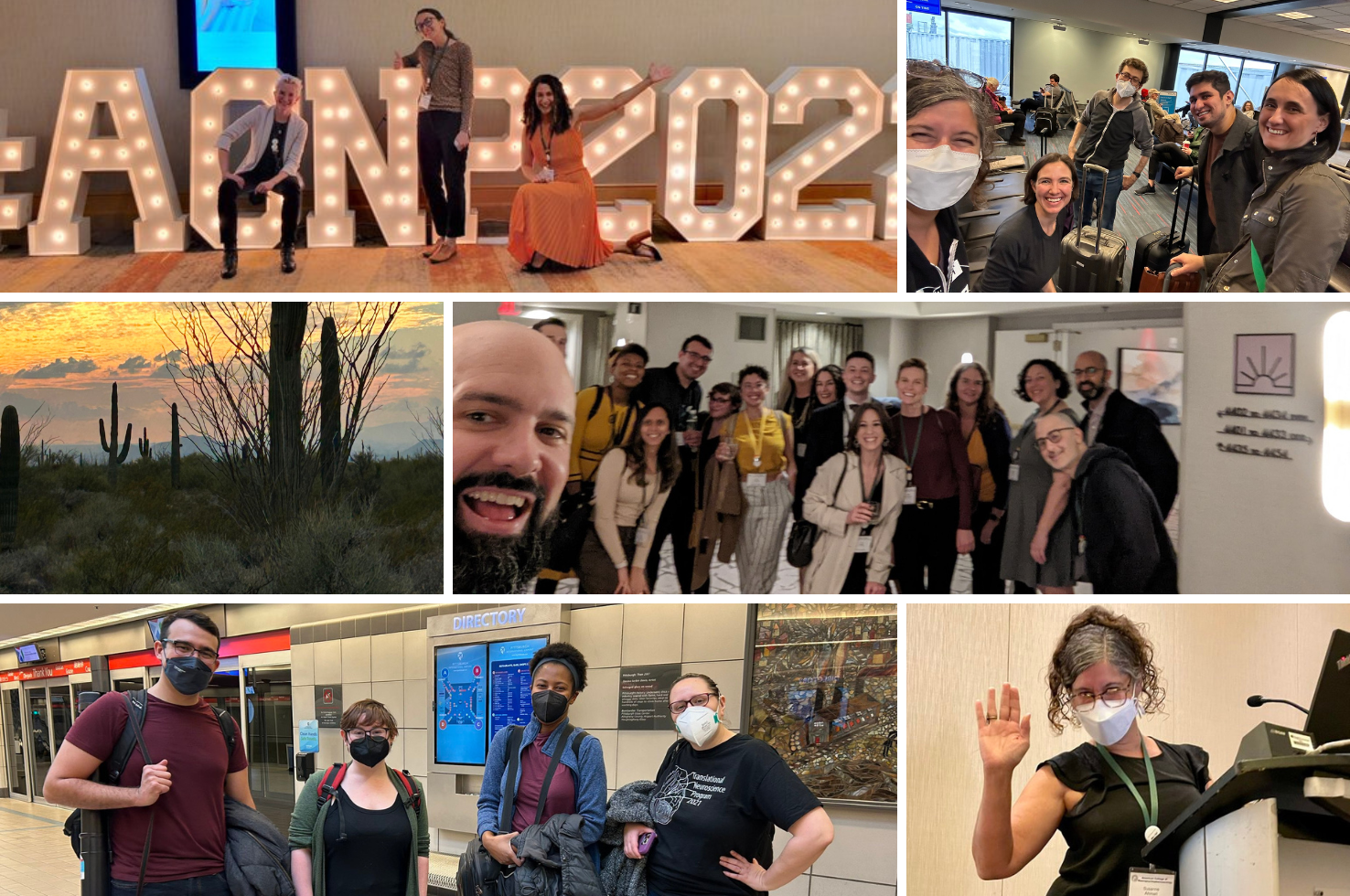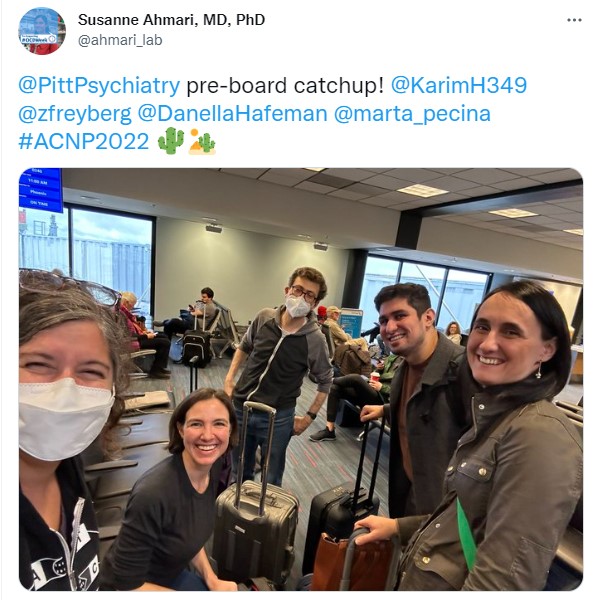Pitt Psychiatry News from the 2022 American College of Neuropsychopharmacology Annual Meeting

Many Pitt Psychiatry faculty and trainees traveled to Phoenix—or participated remotely—for the 2022 American College of Neuropsychopharmacology (ACNP) annual meeting in early December!

Below is Pitt Psychiatry news from the meeting:
President’s Plenary
Marta Peciña, MD, PhD (Associate Professor of Psychiatry), was selected as a President’s Plenary presenter, and discussed the latest work on endogenous opioid release in response to expectancies of pain and mood. Dr. Peciña’s research focuses on the neurobiology and treatment of depression, as well as on identifying individual differences in mechanisms of antidepressant treatment response. She has conducted ground-breaking work using placebos to investigate how expectancies and learning mechanisms impact mood improvement.
Honorific Award
Charles F. Reynolds III, MD (Emeritus Professor of Psychiatry), received the 2022 Julius Axelrod Mentorship Award, which is presented to a member who has made an outstanding contribution to the mentoring of young scientists.
New Members
Please join us in congratulating the following individuals who have been accepted as ACNP members or fellows:
2023 Regular Members:
Rebecca Price, PhD (Associate Professor of Psychiatry and Psychology) – Dr. Price investigates how the mind processes information in anxiety, depression, and suicidality. Her work bridges cognitive, affective, developmental, and clinical approaches to psychology and neuroscience, using techniques such as functional magnetic resonance imaging, pupillometry, eye tracking, and neurocognitive tasks.
Mary Torregrossa, PhD (Associate Professor of Psychiatry) – Dr. Torregrossa uses preclinical models to investigate predictors and consequences of substance use, and aims to use this knowledge to identify novel therapeutic strategies.
2023 Fellow:
Susanne Ahmari, MD, PhD (Associate Professor of Psychiatry) – Dr. Ahmari’s research focuses on developing and applying cutting-edge technologies to uncover neural mechanisms that can be leveraged to develop new treatments for obsessive-compulsive disorder.
Travel Award
Lauren DePoy, PhD (Research Instructor in Psychiatry) – Dr. DePoy’s investigates how circadian rhythm disruption affects substance use and mood-related behavior during development.
